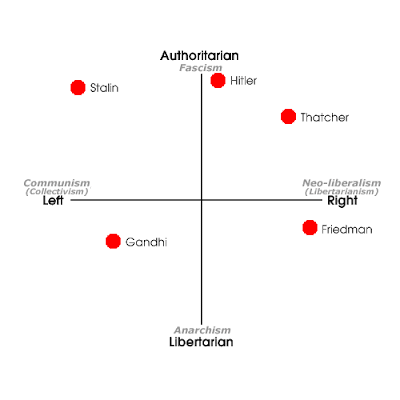君问归期未有期,
巴山夜雨涨秋池。
何当共剪西窗烛,
却话巴山夜雨时。
日日阴雨,湿冷彻骨,云雾偶有消散,屋后山尖的新雪犹抱琵琶。工作不敢有一日停歇,在泥泞湿滑的山路上寻访云里人家。
大概要度过最冷的一个五一节了。
Song of Albatross, of freedom, of aspiration, of prayer, of a fledging bird that is wandering, hovering and waiting..."that made the bleeze to blow"
君问归期未有期,
巴山夜雨涨秋池。
何当共剪西窗烛,
却话巴山夜雨时。
日日阴雨,湿冷彻骨,云雾偶有消散,屋后山尖的新雪犹抱琵琶。工作不敢有一日停歇,在泥泞湿滑的山路上寻访云里人家。
大概要度过最冷的一个五一节了。



Issues at the intersection of science and politics, such as climate change, evolution, and embryonic stem cell research, receive considerable public attention, which is likely to grow, especially in the United States as the 2008 presidential election heats up. Without misrepresenting scientific information on highly contested issues, scientists must learn to actively "frame" information to make it relevant to different audiences. Some in the scientific community have been receptive to this message (1). However, many scientists retain the well-intentioned belief that, if laypeople better understood technical complexities from news coverage, their viewpoints would be more like scientists', and controversy would subside.
In reality, citizens do not use the news media as scientists assume. Research shows that people are rarely well enough informed or motivated to weigh competing ideas and arguments. Faced with a daily torrent of news, citizens use their value predispositions (such as political or religious beliefs) as perceptual screens, selecting news outlets and Web sites whose outlooks match their own (2). Such screening reduces the choices of what to pay attention to and accept as valid (3).
Frames organize central ideas, defining a controversy to resonate with core values and assumptions. Frames pare down complex issues by giving some aspects greater emphasis. They allow citizens to rapidly identify why an issue matters, who might be responsible, and what should be done (4, 5).CREDIT: PHOTOS.COM

Consider global climate change. With its successive assessment reports summarizing the scientific literature, the United Nations' Intergovernmental Panel on Climate Change has steadily increased its confidence that human-induced greenhouse gas emissions are causing global warming. So if science alone drove public responses, we would expect increasing public confidence in the validity of the science, and decreasing political gridlock.
Despite recent media attention, however, many surveys show major partisan differences on the issue. A Pew survey conducted in January found that 23% of college-educated Republicans think global warming is attributable to human activity, compared with 75% of Democrats (6). Regardless of party affiliation, most Americans rank global warming as less important than over a dozen other issues (6). Much of this reflects the efforts of political operatives and some Republican leaders who have emphasized the frames of either "scientific uncertainty" or "unfair economic burden" (7). In a counter-strategy, environmentalists and some Democratic leaders have framed global warming as a "Pandora's box" of catastrophe; this and news images of polar bears on shrinking ice floes and hurricane devastation have evoked charges of "alarmism" and further battles.
Recently, a coalition of Evangelical leaders have adopted a different strategy, framing the problem of climate change as a matter of religious morality. The business pages tout the economic opportunities from developing innovative technologies for climate change. Complaints about the Bush Administration's interference with communication of climate science have led to a "public accountability" frame that has helped move the issue away from uncertainty to political wrongdoing.
As another example, the scientific theory of evolution has been accepted within the research community for decades. Yet as a debate over "intelligent design" was launched, antievolutionists promoted "scientific uncertainty" and "teach-the-controversy" frames, which scientists countered with science-intensive responses. However, much of the public likely tunes out these technical messages. Instead, frames of "public accountability" that focus on the misuse of tax dollars, "economic development" that highlight the negative repercussions for communities embroiled in evolution battles, and "social progress" that define evolution as a building block for medical advances, are likely to engage broader support.
The evolution issue also highlights another point: Messages must be positive and respect diversity. As the film Flock of Dodos painfully demonstrates, many scientists not only fail to think strategically about how to communicate on evolution, but belittle and insult others' religious beliefs (8).
On the embryonic stem cell issue, by comparison, patient advocates have delivered a focused message to the public, using "social progress" and "economic competitiveness" frames to argue that the research offers hope for millions of Americans. These messages have helped to drive up public support for funding between 2001 and 2005 (9, 10). However, opponents of increased government funding continue to frame the debate around the moral implications of research, arguing that scientists are "playing God" and destroying human life. Ideology and religion can screen out even dominant positive narratives about science, and reaching some segments of the public will remain a challenge (11).
Some readers may consider our proposals too Orwellian, preferring to safely stick to the facts. Yet scientists must realize that facts will be repeatedly misapplied and twisted in direct proportion to their relevance to the political debate and decision-making. In short, as unnatural as it might feel, in many cases, scientists should strategically avoid emphasizing the technical details of science when trying to defend it.